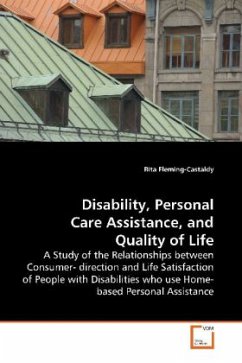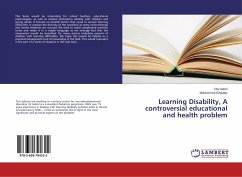People with disabilities often require personal
care assistance (PCA) to perform daily activities
and pursue life roles. PCA has historically been
institution-based, resulting in the segregation of
disabled people. Home-based PCA is an alternative
to institutional care. These services can be agency-
directed or consumer-directed. Disability rights
activists strongly advocate for consumer-directed
programs since personal control is key to a
satisfying life. This text describes the foundations
of consumer-direction and a study which tested the
postulate that having control of and choice in PCA
services result in a more satisfactory life. Since
the incurrence of disability can result in
impairments that contribute to a dissatisfying loss
of control over many aspects of life, the finding
that disabled people can mediate their limitations
by self-managing their PCA is important. The
significant impact of self-management of PCA on life
satisfaction supports the value of consumer-
directed PCA programs for persons with disabilities.
The implications of consumer-direction for
healthcare services, policies, and research are
discussed.
care assistance (PCA) to perform daily activities
and pursue life roles. PCA has historically been
institution-based, resulting in the segregation of
disabled people. Home-based PCA is an alternative
to institutional care. These services can be agency-
directed or consumer-directed. Disability rights
activists strongly advocate for consumer-directed
programs since personal control is key to a
satisfying life. This text describes the foundations
of consumer-direction and a study which tested the
postulate that having control of and choice in PCA
services result in a more satisfactory life. Since
the incurrence of disability can result in
impairments that contribute to a dissatisfying loss
of control over many aspects of life, the finding
that disabled people can mediate their limitations
by self-managing their PCA is important. The
significant impact of self-management of PCA on life
satisfaction supports the value of consumer-
directed PCA programs for persons with disabilities.
The implications of consumer-direction for
healthcare services, policies, and research are
discussed.








